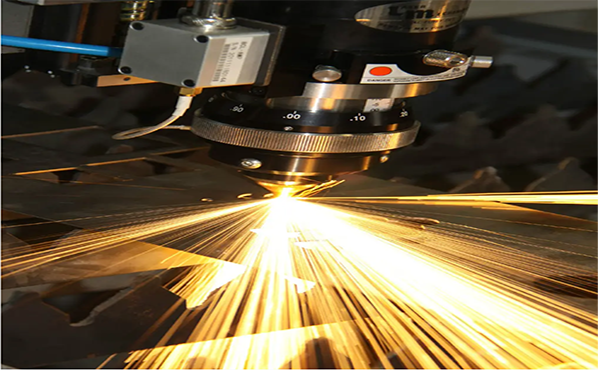Industry 4.0 and CNC Machining: A Symbiotic Relationship in Modern Manufacturing+ View more
Industry 4.0 and CNC Machining: A Symbiotic Relationship in Modern Manufacturing
+ View more
Date:2024-04-09 16:00
As the era of Industry 4.0 dawns, we are witnessing the rise of smart manufacturing and highly automated systems. At the core of this new industrial revolution, centering around data exchange and connectivity, is a transformation that's reshaping the manufacturing landscape. Within this revolution, Computer Numerical Control (CNC) machining technology is notably significant as it provides the foundational support for more efficient and intelligent production workflows.
Integrating CNC Machining with Industry 4.0
Industry 4.0 emphasizes the concept of the smart factory—a production environment integrated with technologies like the Internet of Things (IoT), cloud computing, artificial intelligence (AI), and big data analytics. In such an environment, CNC machining equipment is no longer just individual mechanical devices; they have become comprehensive systems that are informational, networked, and intelligent. Equipped with advanced monitoring and remote operation capabilities, CNC machines can transmit data in real time, self-optimize, and seamlessly interface with other factory floor equipment.
Optimizing Production Processes
Driven by Industry 4.0, CNC machining has evolved from traditional programming and operation to a more complex system engineering approach. Modern CNC machines are capable of collecting and analyzing data about the machining process, including tool life, part dimension accuracy, and machine state information. With this data, machine learning algorithms can predict maintenance needs and potential failures, thereby reducing downtime and extending the lifespan of equipment.
Enhancing Customization and Flexibility
Industry 4.0 has also brought about an increased demand for personalization and small-scale production runs. CNC machining, due to its high degree of programming flexibility, becomes the perfect solution to meet these demands. With simple program updates, CNC machines can easily adapt to different designs and changes, enabling manufacturers to respond quickly to market shifts and meet consumer demands for customization.
Case Study: Aerospace Component Manufacturing
A practical example involves an aerospace component manufacturing company that has embraced an Industry 4.0-integrated system featuring CNC machining to produce complex engine parts. These parts must adhere to exceedingly stringent heat resistance and strength standards. The company utilizes advanced CNC machinery, achieving precise control over machining parameters such as cutting speed and depth while employing sensors to monitor tool wear and part quality in real-time. Furthermore, all production data is uploaded to the cloud for cross-facility data sharing and production optimization.
As part designs often need updates and adjustments based on flight data, the flexibility of the CNC system allows the company to rapidly accommodate design changes without investing substantial resources in retooling or purchasing new equipment. As a result, the company not only improved production efficiency but also reduced the time-to-market for products, all while maintaining high-quality standards for their parts.
Conclusion
In summary, under the backdrop of Industry 4.0, the symbiotic relationship between CNC machining and modern manufacturing grows increasingly intertwined. This relationship has driven a significant leap in productivity, with unprecedented enhancements in the predictability and flexibility of production processes. As new technologies continue to emerge, CNC machining will persist in playing a pivotal role on the path towards smarter manufacturing.
Share to:
Recommend wonderful blog posts

